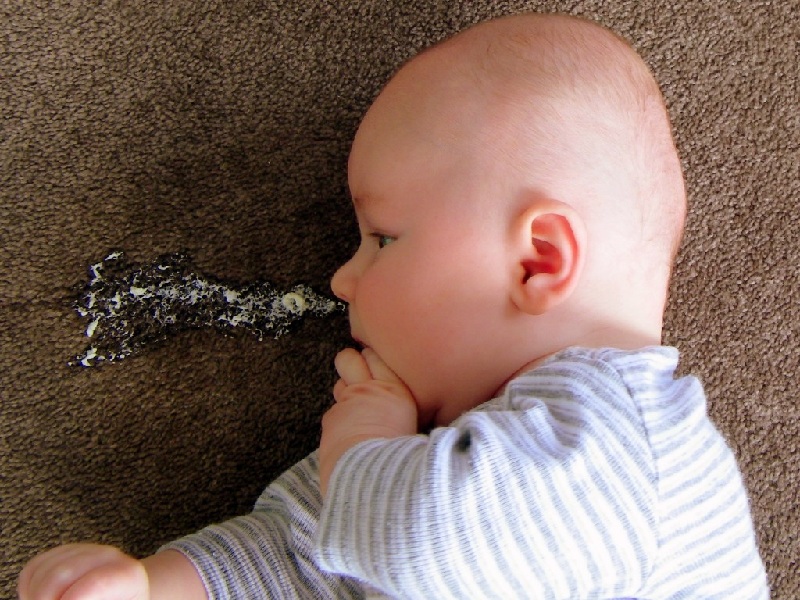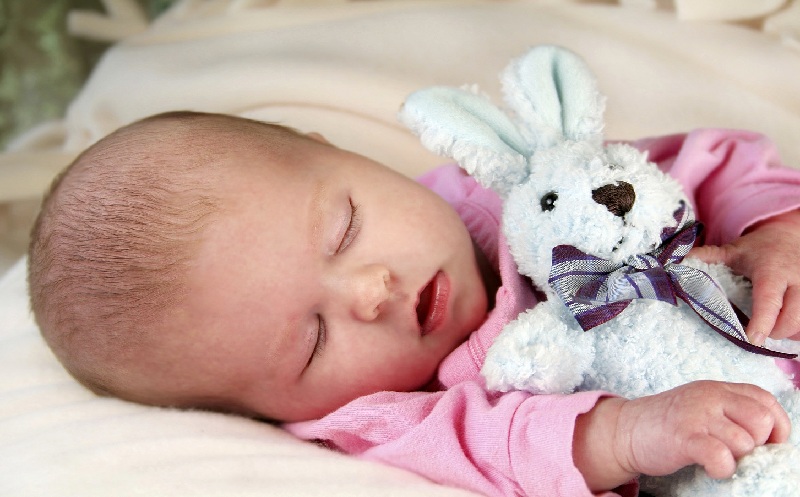Caring parents are always worried about the condition of their baby. And as soon as something goes wrong, they sound the alarm. One of the most common problems is regurgitation in newborns. According to statistics, 66% of children fewer than three months burp at least once a day. This is a completely natural physiological process, but sometimes this phenomenon can signal the presence of health problems. If your baby is “sick” after feeding, be sure to check out our article. In it, we will examine the possible causes of regurgitation in newborns and show you what to do.

Possible causes of regurgitation
If we try to explain in simple words what belching is in newborns, we can say that it is an involuntary pushing of food from the stomach into the esophagus and from the esophagus into the child’s mouth. At the same time, the baby has belching, and a certain amount of milk, which he gets on breastfeeding, spills out. The content can flow out slowly or flows like a fountain – it all depends on how strongly the walls of the stomach push the food. Regurgitation should be distinguished from vomiting: with vomiting, the mixture is more viscous and thick.
There are quite a few reasons for regurgitation in newborns:
- Overfeeding. Many parents adhere to the principle “the more the better”, and therefore they feed the baby too often. From this, the child may experience abundant regurgitation, but it does not pose a danger and does not spoil health. Limiting the amount of food with a high probability will save your child from this problem.
- Prematurity or IUGR (intrauterine growth retardation). Such children slowly develop many processes. As a rule, when the body “grows up” sufficiently, the problem ceases to bother the child.
- Ingestion of excessive air. Regurgitation in newborns can occur due to swallowing too much air. This happens in children who eagerly suck milk from the mother’s nipples with its small quantities. Perhaps the baby takes the nipple incorrectly, which is why it swallows a lot of air along with food.

- Flatulence, constipation, colic. With all the problems mentioned the pressure in the baby’s belly increases, which creates certain obstacles to the advancement of milk and can provoke regurgitation.
Important! You should know that spitting in newborns and babies by itself is not dangerous. However, you should definitely show the child to the pediatrician, if he is losing weight rapidly.

Regurgitation and weight loss: what could go wrong?
About the health of the baby can indicate body weight. If it grows regularly, it means that with a high probability the child has no serious problems. But if your child belches and at the same time loses weight, you should be wary. There are several reasons for this phenomenon:
- Anomalies of the digestive organs. Practically every kid with problems with the gastrointestinal tract will have a strong regurgitation. Perhaps one or more of the organs are too small or large. It is also possible that they are slightly shifted. In this case, only the doctor will be able to identify the problem and recommend specific treatment methods.
- Lactose intolerance. Regurgitation in newborns is observed with lactose intolerance, which is contained in breast milk. In this case, the baby will burp a large amount of fluid and lose weight, since the food is simply not digested. If this problem occurs, the child should be shown to the doctor. He will pick lactose free mixture.
- Infection. The gastrointestinal tract reacts first to any infectious disease. This provokes regurgitation of milk in the child, which are mixed with bile and have a green or yellow shade. In such situations, you should immediately seek help from doctors.

How to reduce the frequency of regurgitation?
To reduce regurgitation, do the following:
- do not overfeed the baby: you can feed him more often, but in smaller portions;
- when breastfeeding, make sure that the head of the child is above the body;
- Before feeding, massage the baby’s tummy;
- when you put the newborn to sleep, swaddle him (everything except the legs);
- spend more time outdoors;
- after meals, keep the child in a straight position so that he belches the accumulated air;
- Slightly raise the head of the bed: it is desirable that the child slept on his side.

Treatment
The regurgitation therapy in newborns and infants consists in finding the cause of such a symptom and its further elimination. Perhaps the use of drug therapy. If it turns out to be ineffective, the baby can wait for surgery, but this happens very rarely and only with serious illnesses. In most cases, regurgitation goes off by itself with age, and therefore do not sound the alarm ahead of time – everything will be fine!
We hope that you have read the article with interest and discovered something new. We wish your baby to grow up healthy, strong and beautiful!


